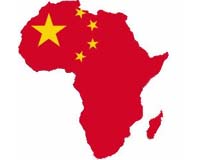| . |  |
. |
Abuja, Nigeria (UPI) Oct 4, 2010 Southern insurgents who have battered Nigeria's oil industry since 2005 took their war into the capital, Abuja, in what was widely seen as a last warning to the country's political elite to make a deal or face new attacks on the all-important oil fields. Three car bombings that killed at least 12 people as Africa's most populous nation celebrated the 50th anniversary of its independence from British rule were claimed by the Movement for the Emancipation of the Niger Delta, the principal insurgent group. The Friday bombings were Mend's first attack in Abuja, hundreds of miles north of the Niger Delta where Nigeria's oil wealth is concentrated, and only its second outside its home region. It was also its first attack since March when it detonated two car bombs in the delta town of Warri, killing several people. That attack was apparently intended as a wake-up call to the Abuja government to stick to an amnesty and cease-fire agreement that was foundering after President Umaru Yar'Adua fell ill with heart problems. Yar'Adua died in May and was replaced by his vice president, Goodluck Jonathan, a southerner from the delta region. But he is locked in a power struggle with northern political barons that is expected to intensify ahead of presidential elections in January. Government official confirm that Mend's spokesman, Jomo Gbomo, gave an e-mail warning some time before the bombs exploded Friday but notably absent from the warning was any declaration about launching the "all-out war" the movement has threatened to unleash in recent communiques. "While Mend does not always follow through on such threats to as full an extent as may be expected, it historically has matched the rhetoric with actions," the U.S. global security consultancy Stratfor observed. "Rather than the start of a new round of militant attacks against oil production sites in the Niger Delta, the Oct. 1 blasts most likely were a reminder to Nigeria's elite that while Mend has been quiet in recent months, it is still around and is capable of conducting attacks far from its home if its demands for a greater share of oil revenue -- among other things -- is not addressed." While public attention has focused primarily on the political upheaval caused by Yar'Adua's death, with the leaders of the Muslim north clashing with the Christians who dominate in the south over the presidency, Yar'Adua's cease-fire has been slowly collapsing. Some 15,000 insurgents surrendered their weapons in late 2009 on the promise of monthly stipends and jobs. But many say these have either not been forthcoming or have hit bureaucratic snags. The killing of a onetime militant leader in the delta oil hub of Port Harcourt Aug. 24 underlined the anger and frustration seething among the delta's impoverished tribes who claim they have been neglected and marginalized for years by the government. Sobama George, who accepted Yar'Adua's amnesty, was shot dead in the street. The police dismissed it as a gang killing, since many of the Mend activists moonlight with private militias run by political bosses that are particularly active strong-arming voters during election campaigns. But there's growing evidence that George, a strong supporter of the amnesty, was killed by disgruntled militants. "Sobama's killing is a setback for the amnesty program because he was a major stakeholder," said Akinaka Richard, head of a local civic society group and a member of the government's amnesty implementation committee. "He always encouraged his boys to participate in the post-amnesty program Now the boys are feeling very insecure and angry. They're grumbling that if not for the amnesty their boss would not have been killed like that." Jonathan, the first president from the south, has vowed to secure peace in the Niger Delta and to ensure that Yar'Adua's plan, the most comprehensive effort made to end the insurgency, doesn't collapse. A new conflict in the delta could be disastrous for Nigeria. Insurgent attacks had slashed oil production by 40 percent before the amnesty took hold. Bombings, burnings and kidnappings cost the country an estimated $1 billion a month in lost revenue. If the anger among young militants continues to swell, more leaders like George may be gunned down.
Share This Article With Planet Earth
Related Links Africa News - Resources, Health, Food
 China-Africa 2010 trade to top 100 billion dollars: report
China-Africa 2010 trade to top 100 billion dollars: reportBeijing, China (AFP) Oct 3, 2010 Beijing says its trade with Africa is on track to top 100 billion dollars this year as it benefits from investments in mines, farms and factories on the continent, state media reported Sunday. Trade between China and Africa jumped 65 percent on year in the first half to 61.2 billion dollars, China's Ministry of Commerce has said, according to the official news agency Xinhua. China-Africa ... read more |
|
| The content herein, unless otherwise known to be public domain, are Copyright 1995-2010 - SpaceDaily. AFP and UPI Wire Stories are copyright Agence France-Presse and United Press International. ESA Portal Reports are copyright European Space Agency. All NASA sourced material is public domain. Additional copyrights may apply in whole or part to other bona fide parties. Advertising does not imply endorsement,agreement or approval of any opinions, statements or information provided by SpaceDaily on any Web page published or hosted by SpaceDaily. Privacy Statement |